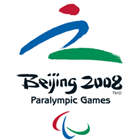One Year After Beijing Paralympics
Beijing 2008 Paralympics had a total of 3,951 athletes from 146 different countries from around the world 06 Sep 2009Today, 6 September 2009, marks the official one year mark since the spectacular, record-breaking Beijing 2008 Paralympic Games.
The Beijing 2008 Paralympics had a total of 3,951 athletes from 146 different countries from around the world. The Games took over Beijing, China, for 12 full days, with the Closing Ceremony ending the competition and events on 17 September. Footage of almost all the sports and events is available to view on the IPC's internet TV channel, www.ParalympicSport.TV.
The medal tally was topped by the host country, China, winning 89 gold medals. Following the Chinese Paralympic Team in the gold medal count were Great Britain with 42, the United States with 36, the Ukraine with 24, and Australia with 23. China and Great Britain also held the top two positions after the Athens 2004 Paralympic Games.
To celebrate the one-year anniversary of the Games, an official event takes place to recognize the achievements and legacy of Beijing. International Paralympic Committee (IPC) President Sir Philip Craven is on hand in the Chinese capital for the evening celebration and gives a speech on the changes which took place during the Games, as well as the effects on the Paralympic Movement today. Sir Philip will also receive the Beijing Honorary Citizenship Certificate from the Mayor of the city, and meet with Beijing Organizing Committee President Liu Qi and President of the China Disabled Persons’ Federation Deng Pufang.
Since the Beijing 2008 Paralympic Games, the affects of the event has been anything but unnoticeable. The capital of China has forever changed and visitors from around the world can now see the incredible results.
A Paralympic Games Impact report out of China says that the impact indicators could be put into three categories, including conceptions, organization and deployment of material and manpower. The perceptions of the public for example toward people with a disability have become that of an open understanding of equality and diversity. Specifically, the change includes people’s attitudes toward people with a disability, toward their participating in social activities and their enjoying of social rights and interests, and their image among the public.
The report continues, comparing two survey results, and showing that the public evaluation of the Paralympics impact on public perceptions of people with a disability was much higher after the Games than that before the Games. In 2006, about 89% of able-bodied people and 86% of people with a disability held a positive view that the Paralympics would help improve the social status of the people with a disability, while in 2008 after the Games was over, the two figures rose to 98% and 93% respectively.
Back in 2006, around 95% of the able-bodied people and 89% of people with a disability believed that the Paralympics would encourage the public to pay more attention to the group, while in 2008 after the Games had ended, the two figures reached 97% and 92% respectively. And, in 2006, 93% of the able-bodied people and 87% of the people with a disability held that the Paralympics would help earn people with a disability more respect from the public, while in 2008 when the Games were over, the two figures rose to 98% and 91%.
Facts and figures show that in 2006 an overwhelming majority of people held a positive view on the influence of the preparation and hosting of the Paralympics in changing public perceptions of people with a disability, and in 2008 when the Games were closed, the actual general public evaluation in this regard was much higher than expected. It is therefore safe to say that the Paralympics is a success in bettering public perceptions of people with a disability, elevating their social status, capturing more public attention to them and earning them greater respect from the general public.
For more information about the Beijing 2008 Paralympic Games, please visit www.paralympic.org -> Paralympic Games -> Past Games.

 Facebook
Facebook
 Instagram
Instagram
 Twitter
Twitter
 Youtube
Youtube
 TikTok
TikTok
 Newsletter Subscribe
Newsletter Subscribe

